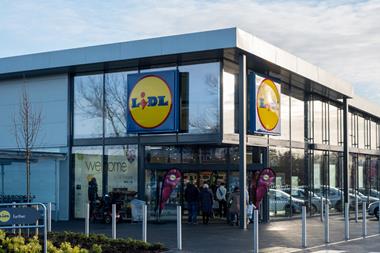Food processors should be just as liable to a code of practice as supermarkets, and suppliers to Sainsbury should help the crisis-hit retailer through its troubles because it is for their own good, according to BRC chief executive Kevin Hawkins.
Hawkins, speaking at this week’s IFE, rounded on critics of the multiples, claiming that although the focus was constantly on how much money was made by food retailers, they were actually less profitable than the food manufacturers that supplied them.
He said: “The usual tactic is to compare the farmgate price of a product with the final price to the consumer and imply the gap
is all profit to the retailer. This usually ignores what happens in the middle - the processing sector. And in case anyone thinks processors make very little profit, being squeezed to death by supermarkets, I remind you that whereas the average net margin on sales in food retailing is just over 4%, in food manufacturing it is about 9%.”
Hawkins said that the supermarkets code of practice was there to protect smaller businesses including farmers. The big food manufacturers would simply pick up the phone to a retailer if they had a problem and discuss it.
But because few farmers supplied retailers directly the code did nothing to protect them, he said. If the OFT recommended tearing up the existing code and replacing it with a new one, it should cover the manufacturers supplied by farmers, added Hawkins.
He added: “A lot of suppliers have made a lot of money out of supplying Sainsbury. They would really feel the heat if Sainsbury capitulated to a venture capitalist, because when a VC takes over there is cost cutting of the sort you have not seen before, and suppliers would get a very hard time of it.”
Richard Clarke
Hawkins, speaking at this week’s IFE, rounded on critics of the multiples, claiming that although the focus was constantly on how much money was made by food retailers, they were actually less profitable than the food manufacturers that supplied them.
He said: “The usual tactic is to compare the farmgate price of a product with the final price to the consumer and imply the gap
is all profit to the retailer. This usually ignores what happens in the middle - the processing sector. And in case anyone thinks processors make very little profit, being squeezed to death by supermarkets, I remind you that whereas the average net margin on sales in food retailing is just over 4%, in food manufacturing it is about 9%.”
Hawkins said that the supermarkets code of practice was there to protect smaller businesses including farmers. The big food manufacturers would simply pick up the phone to a retailer if they had a problem and discuss it.
But because few farmers supplied retailers directly the code did nothing to protect them, he said. If the OFT recommended tearing up the existing code and replacing it with a new one, it should cover the manufacturers supplied by farmers, added Hawkins.
He added: “A lot of suppliers have made a lot of money out of supplying Sainsbury. They would really feel the heat if Sainsbury capitulated to a venture capitalist, because when a VC takes over there is cost cutting of the sort you have not seen before, and suppliers would get a very hard time of it.”
Richard Clarke


















No comments yet